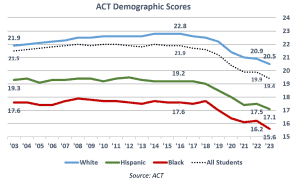School Choice supporters in Kansas are applauding a pair of recent victories in West Virginia and Arizona that they hope will result in similar legislation when lawmakers go back into session in January.
The West Virginia Supreme Court found that the state’s HOPE (Helping Outstanding Pupils Educationally) Scholarship Program is constitutional after opponents argued it starved the public school system by diverting public funds away from it. The program provides some $4,300 per student if they agree to leave the public system and enroll in a home school or a private, charter, or religious institution.
In Arizona, opponents tested a new school choice law passed this summer by attempting to gather enough signatures to place an issue overturning it on the ballot this fall. The effort failed. Arizona students will receive $7,000 each in public money for an Empowerment Scholarship Account (ESA) to invest in another public school, a home school, or a private or charter program.
The two states’ initiatives differ in that the West Virginia plan requires the student to withdraw completely from the public school system.
Kansas has made modest progress on the path to School Choice recently with its expansion of the Tax Credit for Low-Income Students Scholarship Program and Open Enrollment, passed this year in a bipartisan fashion, which will permit any Kansas student to transfer schools, based on the receiving school’s capacity.
But advocates want to move faster, and they point to persistently low student achievement and disturbing results for the state in the Education Freedom Report Card from the Heritage Foundation. It ranked states based on four categories:
- School Choice
- Transparency
- Regulatory Freedom
- Spending
The Sunflower State ranked 36th.
Among the study’s findings:
On School Choice:
Kansas ranks #32 for school choice. Kansas does fairly well in allowing parents to choose among private and district schools but could do more to expand education choice. Kansas generally respects the autonomy of homeschooling families.
Kansas could improve its ranking by establishing K–12 education savings accounts, expanding eligibility for and boosting participation in its private-school-choice program, making it easier for more charter schools to open and operate, and giving families more choice among traditional public schools.
On Transparency:
In 2022, Governor Laura Kelly (D) vetoed legislation that would have protected parents and students from racial discrimination caused by the application of critical race theory in schools. Kelly rejected a proposal that would have created a parental bill of rights stating that parents have the right to “direct the upbringing and the moral and religious training” of their children and that no child should be compelled to “affirm, believe, profess or adhere to any idea that violates the civil rights act of 1964.” Lawmakers have not adopted proposals to make K–12 academic content more transparent to taxpayers and families.
On Regulatory Freedom:
The Sunflower State ranks low in terms of regulatory freedom, ranking 45th among states. Although Kansas does not use Common Core–aligned tests, that is where the good news ends. Just 12 percent of its teachers are alternatively certified, and the state does not allow full reciprocity of teacher licensure. Moreover, all school districts with more than 15,000 students employ a “chief diversity officer,” though only five school districts in the state enroll that many students.
Kansas can improve its regulatory freedom score further by significantly expanding alternative routes to the K–12 classrooms for aspiring teachers or ending certification requirements altogether and by allowing full reciprocity of teacher licensure.
Attorney and former Kansas House Speaker Mike O’Neal applauded the School Choice victories in the two states:
“The recent victories for school choice in West Virginia and Arizona shine a light on what should soon be a national trend. There is a growing and powerful grassroots effort by parents to resume their rightful place in making educational decisions for their children. The provisions in state laws providing for public education were never intended to establish educational monopolies but, rather, educational opportunities. The quality of a child’s education should never depend on their zip code. Where school choice exists, students and their parents win. Competition breeds improvement.
“I was struck by the response of West Virginia State School Board President Paul Hardesty to the school choice victory there. He conceded, as all state leaders should, that the legislature will continue to fund public schools at adequate levels. But, importantly, and rightfully, he said, “It is time for the West Virginia Department of Education to focus on the basics – student achievement with a renewed focus on math, reading, writing, and English language arts.” Indeed, it has been the chronic lack of student achievement in the face of historic levels of public funding that has caused parents across the country to unite to find better educational opportunities for their children. Competition will be good for the public school system. The victories in Arizona and West Virginia should motivate inspire Kansas parents and legislators to embrace a wide array of school choice options.”




